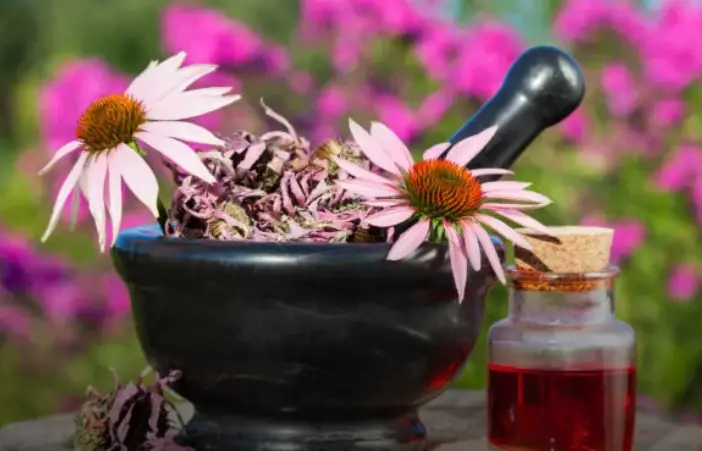
It’s one of the most powerful remedies in North America, utilized for hundreds of years.
Even with this long, outstanding history of effective use, echinacea is still not a household name, as most people prefer over-the-counter or prescription drugs.
Despite its relative anonymity, using echinacea consistently offers transformative health benefits.
Echinacea: The Antioxidant Powerhouse
With its cone flower shape and brilliant pink or purplish petals, echinacea is a healing salve of many stripes.
Its disease-protective antioxidants include flavonoids (disease protective), cichoric acid (an enzyme that protects collagen, the most abundant and youth affirmative protein in your body, from damage), and rosmarinic acid (a healer of arthritis, dermatitis and asthma).
These healing compounds are most concentrated in the fruit and flowers of the plants.
Echinacea also contains alkamides, compounds that enhance the function and precision of antioxidants for targeted healing to various systems of the body.
Echinacea Improves Feelings of Anxiety
Anxiety is believed to be the world’s biggest mental health problem, and affects close to 20% of U.S. adults.
Echinacea has been shown to reduce anxiety. Its three antioxidant compounds mentioned above: flavonoids, cichoric acid, and rosmarinic acid have been shown to help in this area.
Studies have shown that echinacea may reduce feelings of anxiety in both lab animals and humans thanks to the presence of these compounds.
Echinacea Reduces Inflammation Better Than Drugs
Inflammation may raise your risk of chronic diseases and other health problems, and echinacea is one of the best ways to reduce it.
Several studies have demonstrated that the venerable cone flower can reduce excess inflammation in the body.
It has also been shown to improve biomarkers associated with memory loss and osteoarthritis.
One 30-day study found that adults with osteoarthritis who took a supplement containing echinacea extract signficantly reduced inflammation, chronic pain and swelling.
The study found that these adults did not respond well to conventional NSAIDS (non-steroidal inflammatory drugs), but were helped by the supplement.